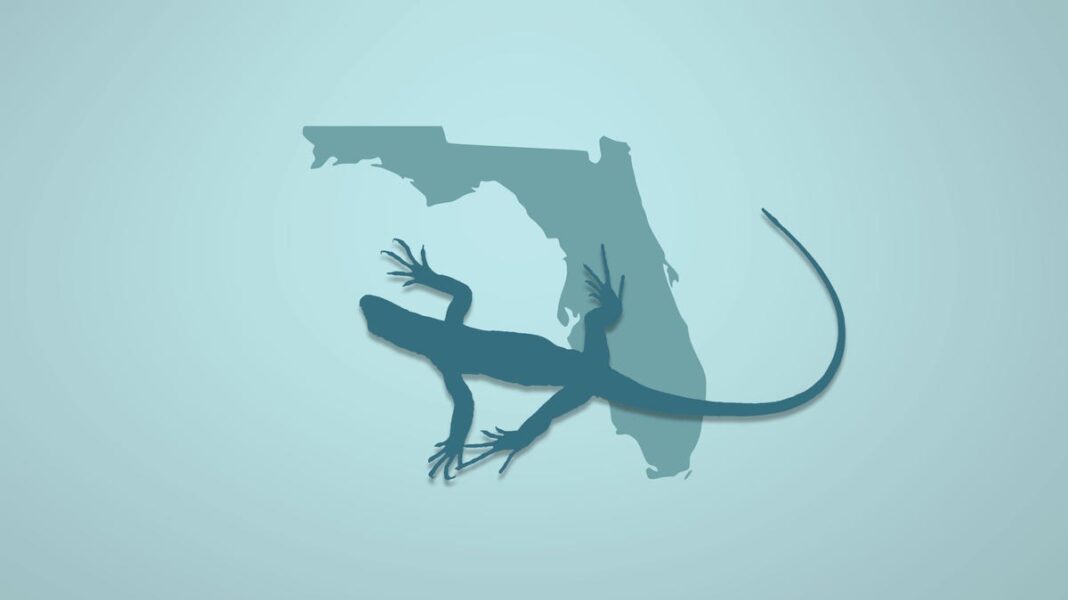What happens to iguanas when cold weather strikes? Florida’s unique phenomenon explained
As colder temperatures and biting winds sweep through South Florida this week, a curious event often seen in the region is expected to occur: falling iguanas.
The green iguana, which is known to be an invasive species in the state, likely arrived in Florida during the 1960s due to the exotic pet trade. These reptiles typically thrive in the warm climate of Florida, which aligns with their natural habitats stretching from Central America to tropical areas of South America and parts of the eastern Caribbean.
However, when cold fronts roll in and bring frigid northern winds, temperatures dropping below 50 degrees can paralyze iguanas while they cling to tree branches, causing them to lose their grip and tumble to the ground. Although this paralysis is temporary, it does put them at risk of becoming prey for bobcats and coyotes.
Why do iguanas freeze up in the cold?
Iguanas, being cold-blooded animals, depend on external heat sources to maintain their body temperature. They are diurnal creatures, often basking in the sun on the ground, rocks, or tree branches. It’s not unusual to see them soaking up warmth on sidewalks or other heated surfaces.
According to experts from the Florida Fish and Wildlife Conservation Commission, non-native green iguanas become motionless when air temperatures drop to between 40 and 50 degrees. Typically, they can recover once temperatures rise, provided they aren’t attacked by predators or run over on roadways. However, prolonged exposure to cold can disrupt their digestive systems and lead to harmful bacterial infections.
The last significant die-off of iguanas due to cold occurred in January 2010, when temperatures in West Palm Beach fell into the 30s multiple times over an 11-day period.
What should you do if you find a fallen iguana?
If you see an iguana that appears to be immobilized, it may seem lifeless or asleep. However, it will revive and move once the temperatures rise again. Since they are wild animals equipped with sharp teeth and claws, experts advise keeping your distance and not disturbing them.
Contributing: Kimberly Miller, The Palm Beach Post
SOURCES The Palm Beach Post; Naples Daily News; Florida Fish and Wildlife Conservation Commission; University of Florida

